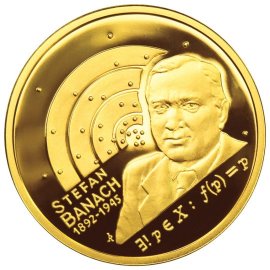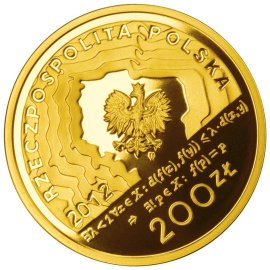News /
American soldiers beat up in Torun, Łódź [141]
Harry, you claim to have been living in Poland for 17 years and you still do not understand anything about the country. Hoodlums do not need any real reason to beat someone up. All they need is a slight excuse. They are opportunists. If the potential victim looks weak (as those Americans do) the worse for him. If he looks strong then they might feel like taking him up to a challenge. Statistically, Harry, your racist theory does not hold any water. The fact that one of them looked Korean is irrelevant. He was after several drinks, he was in the uniform, he looked weak and therefore a good target. The fact that the thugs also stole his buddy's expensive cell phone (iPhone?) shows how opportunistic the thugs were.
Anyway, here are some recent examples. And what is a common denominator here? Definitely not a race, but the place where beatings occur: night clubs, bars, etc. And this usually happens late at night.
2012-03-11: Mikołaj Burda, a five-times rowing medalist of European Championships, was sucker punched for no apparent reason, in one of Toruń's night clubs. He hit the ground, passed out, and consequently he is on observation in a hospital in Toruń. He is neither Black nor Asian, and he looks quite strong.
2012-02-12
Alan Andersz (24), Polish actor and dancer, was taken in serious condition to hospital, after either a fight or a sucker punch, as a result of which he either hit a pot or fell down the stairs. This happened in one of Warsaw's clubs. He does not look to me Black or Asian either. Excuse:? He was supposedly showing off.
2012-03-02
Włodawa. Two brothers (22, 24) beat up a 40 years old man with a rail, apparently because he was defending a barmaid. The Lublin's criminal chronicle does mentioned their skin colour, Harry, but I guess he was neither Black or Asian.
Harry, I am not going to waste my time searching through tabloids in order to make up my own statistical data file. The police produces some statistics, for example this: policja.pl, which may help evaluating the beating incident in Toruń in proper light. Check "Aktualności" (use pulldown menu to select a crime category), check also Statystyka (ogólne statystyki and wybrane statystyki); that is General Statistics and Selected Statistics.
According to them, there were about 12,000 proven fights and assaults in Poland in year 2011. A very small number compared to robberies, thieveries, etc..
There were 2319 suspected crimes committed by foreigners, and 1219 foreign victims on territory of Poland in the year 2010. Country wise the corresponding numbers are like this: (Great Britain 15 67), (USA 10 25), (Belarus 157 35), (France 20 50), (Lithuania 187 37), (Germany 137 297), (Ukraine 659 111), (Russia 133 42), etc.
(Another statistics at the same site, for the ¾ of year 2009, shows 16 foreign victims of assault.)
Locations of brawls or beatings for year 2010: (house 336), (multiplex 708), (cottage 12), (hotel, motel 31), (camping, campsite 17), (shopping centre 49), (warehouse 3), (service workshop 4), (restaurant, bar 594), (boutique 56), (train 14).
So now, putting it all together: 12,000 brawl and assaults, 594 of them in bars, 25 American victims, assumed 10 of them beaten up, assumed all assaults racist and not sexist, assumed 5 of them Black. What does it give us? Black Americans beaten up in bars in Poland are about 1% of total assaults. But wait, if I take a hint from another statistic that claims a total of 16 assaults on foreigners, than if 50% of them are Black or Asian, than we come to more or less the same conclusion: non-white foreigners beaten in bars/clubs are about 1-2% of total number of assaults. The results would look even less significant if I included other public spaces.
Surely police statistics are biased. Sure, the racially motivating beating happen, I am not denying it. But, unless you prove that any significant percentage (> 20% cases perhaps?) of such incidents belong to racial category in Poland, I am going to ignore your 17 years experience in Poland and your gut feelings.
Oh, you do not need to rush with your response. I will be out for several hours, counting now.
 PolishForums LIVE / Archives [3]
PolishForums LIVE / Archives [3]

